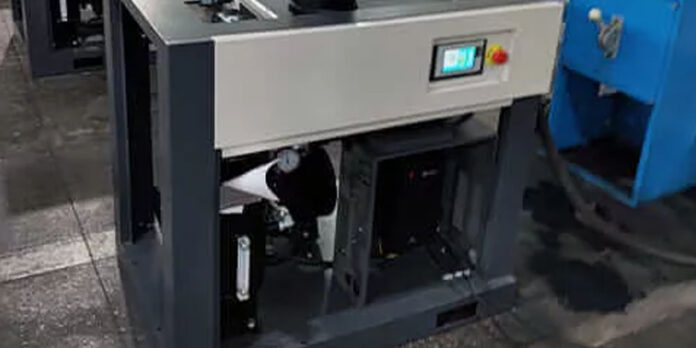Traditional air compressors run continuously at a certain speed because they have a fixed speed. This produces a specific amount of compressed air every minute. The fixed-speed compressor technology has many advantages if your compressed air needs are balanced and constant.
Furthermore, since an engine start-up would put a strain on the motor, fixed speed runs without any load. Since the machine is operating but not producing compressed air energy may be lost. Variable speed compressors which adapt their output to the degree of demand prevent this issue.
Simply by developing with screw compressors with constant frequencies have a long lifespan and are able to give consistent performance for a long time. The longevity will of the compressor be influenced by a number of factors, including the level the of upkeep and the working environment. With the proper upkeep and attention, a fixed-frequency screw compressor can function for more than ten years.
Specifications of Fixed Compressor
The sections that follow briefly touch on a few key issues before explaining the benefits and traits of a screw compressor with a set frequency can
Adaptability
The compressor makes sense for a variety of industries, including production, chemical, medical, and food because it can compress a wide spectrum of gasses. A screw air compressor with a fixed frequency. Is an effective, dependable, and easy-to-use tool that will help you complete your work quickly while saving money on energy costs?
Efficiency
The energy-efficient fixed-frequency screw air compressor innovations to adapt its speed based on your air demand, helping you saving money on energy expenditures while expediting the delivery of more airflow.
Easily Functional
Using a sophisticated control system would allow you to easily change the pressure, temperature, and airflow with only the click of a button.
Dependability
Because of how it was built using top-notch materials and production processes, the compressor is strong, reliable, and reputable.
Advantages of Fixed Speed Compressor
Maintenance Required
Fixed-speed compressors often require less maintenance because of their less complex designs and components. Long-term time and resource savings may result from this since they may require fewer replacement parts, have a lower likelihood of component failure, and are easier to maintain.
The Upfront Cost
Since they have simpler designs and require fewer components, fixed-frequency screw compressors typically have lower startup costs. Because of this, they are a tempting alternative for businesses on a limited budget or for those looking for a straightforward solution without the need for complex features.
Application Area
Fixed-speed compressors work best in settings with steady air demand, such as factories with well-defined production cycles, continually running workshops, or places that require a consistent supply of air throughout regular business hours.
Frequency of Noise
Fixed-frequency compressors tend to produce more noise due to their continuous motor speed, which could lead to a louder working environment. This might not be the greatest choice for businesses that want a quieter workplace or for locations where noise pollution is an issue.
Controlled Options
Fixed-speed compressors offer few control choices because of their fixed speed of operation. When air usage varies throughout the day or week, they might not be the best option because this can
Energy Conserving
Because they run at a fixed speed, fixed-frequency compressors consume the same amount of energy regardless of how much air is actually needed. When the demand for air varies throughout the day or week, this could result in energy waste and lower efficiency.
Ending Thoughts
While fixed-speed screw compressors are more straightforward and have lower initial costs, variable-speed screw compressors offer better energy efficiency and versatility. Your particular requirements and operational needs will determine the best choice. Fixed frequency compressors are initially less expensive and require less upkeep, but they could be less effective and adaptive in terms of control options and power consumption.




